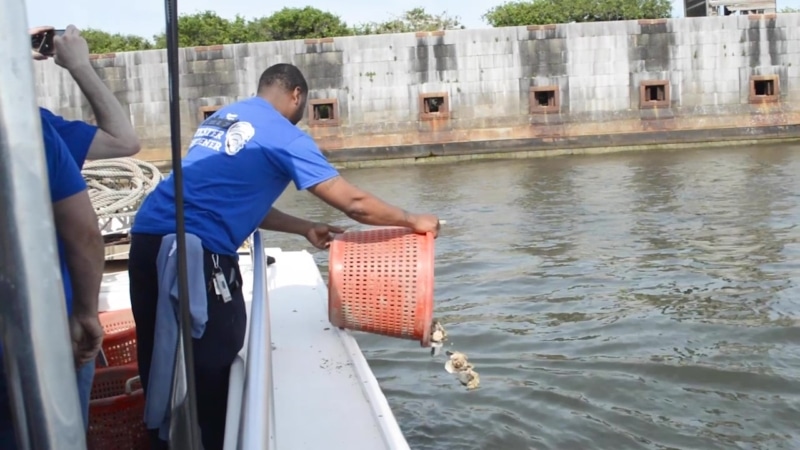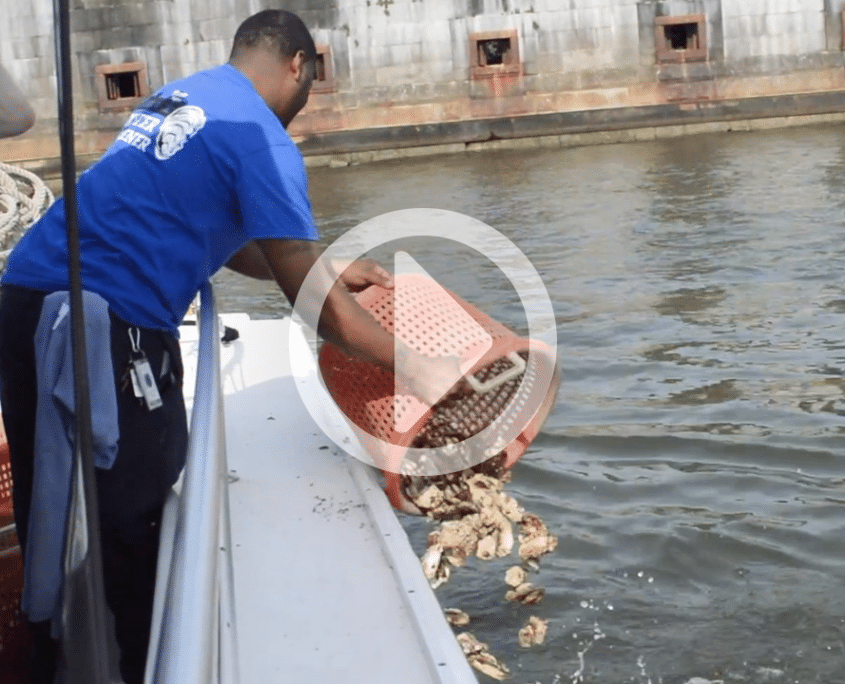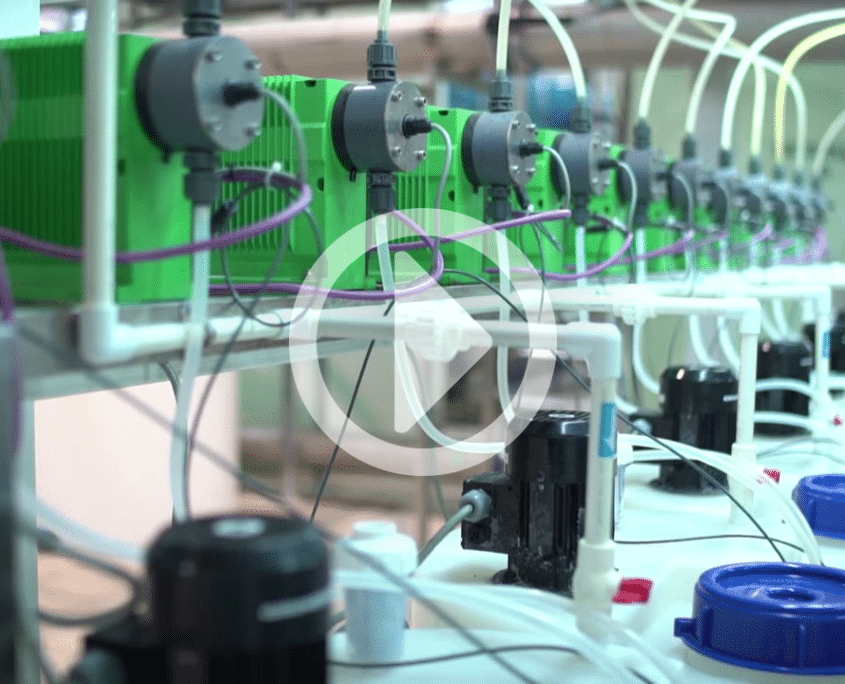Baby oysters, water reductions part of Domino Sugar’s sustainability efforts
From raising baby oysters in Baltimore’s Inner Harbor to cutting water usage at the Yonkers refinery, Domino Sugar is a leader in sustainability.
Dr. Daryl Sabourin, ASR Group’s Global Director of Sustainability, is part of the effort to raise baby oysters in Baltimore that eventually help filter water in the Chesapeake Bay.
“They’re literally nature’s wastewater treatment plant,” he said. “So, an adult oyster can usually filter about 50 gallons of water a day.”
For generations the sturdy Domino Sugar bag has lined grocery store shelves promising to safely deliver home the sweetness inside.
To make the sugar bag more sustainable, the packaging team at Domino Sugar designed a 4-pound bag that uses one-ply paper instead of two-ply paper.
The new bag uses special paper that works with the company’s existing packaging machines. It turned out stronger than the old bag even with less paper. And the difference was unnoticeable to consumers.
“We really wanted it to be invisible to the end user,” said John Monroe, Director of Packaging Engineering. “And sometimes those are the best changes.”
The change is projected to save 600,000 pounds of paper annually or a 20 percent reduction in paper use.
“For us it really impacts the overall viability of the organization because you know we do have that agriculture component to it and if we’re not taking sustainable steps for the overall health of the planet we can’t survive as a business,” Monroe said. “We have to walk the walk and not just talk the talk when it comes to sustainability so it’s always something that is on the forefront of our mind.”
For the fourth year in a row, ASR Group’s Domino Sugar Refinery employees partnered with the Chesapeake Bay Foundation to raise about 150,000 baby oysters.
Volunteers from Domino Sugar in the Inner Harbor raise the baby oysters and transport them to a sanctuary reef in the Patapsco River, where they help filter water headed for the Chesapeake Bay.
“They’re going to sit there for another 20 years and there’s 150,000 of them treating 50 gallons of water a day. You’re looking at about seven and a half million gallons of water that just is treated by nature’s own device,” he said.
The effort has been so popular with volunteers, the refinery hopes to double the size of its oyster garden in the Inner Harbor.
“It’s got to be everybody actively pursuing sustainable development,” Sabourin said. “Whether it be in oyster gardening or whether it be optimization of the facility’s resource use, it’s got to be really a combined effort and I just consider myself very lucky each year to get the invite to come help out.”
In New York, ASR Group’s Yonkers Refinery is also taking steps to protect the water.
The team at ASR Group’s Yonkers Refinery installed water meters all over the facility and reexamined every process to find ways to reduce or reuse water.
Cold water that once left the plant after a single use is now heated for hot water needs. Steam and vapor is captured. Water used to rinse off sugar resin is cleaned and put back into service elsewhere.
The end result is a 24 percent reduction in water use.
“It’s just something that I know the city of Yonkers knows about it’s something they’re proud of,” said Elizabeth Mendonca, Yonkers Refinery Manager. “I hope that people in Yonkers do know all the things that we’re doing to be more sustainable and support our local community. We’re trying to bring the water usage down overall in Yonkers so that we’re all benefiting from it.”





